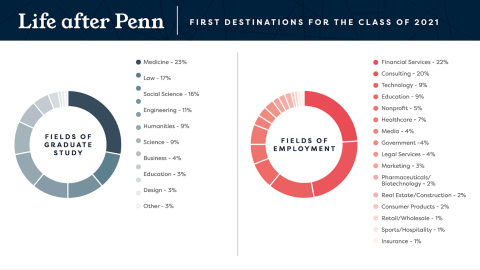A liberal arts education trains students for more than a particular profession; it imparts skills and knowledge that cut across multiple disciplines, regardless of major, to serve graduates for a lifetime. College students examine and reflect on the big questions impacting the human experience and emerge as global citizens and leaders, able to find success wherever education or career aspirations may lead.
As a student in the College of Arts and Sciences you will acquire the creative, analytical and communication skills—the intellectual agility—to adapt and make an impact in a rapidly changing world. Along the way, there are many resources to assist you in your journey from undergraduate student to your life after Penn.

